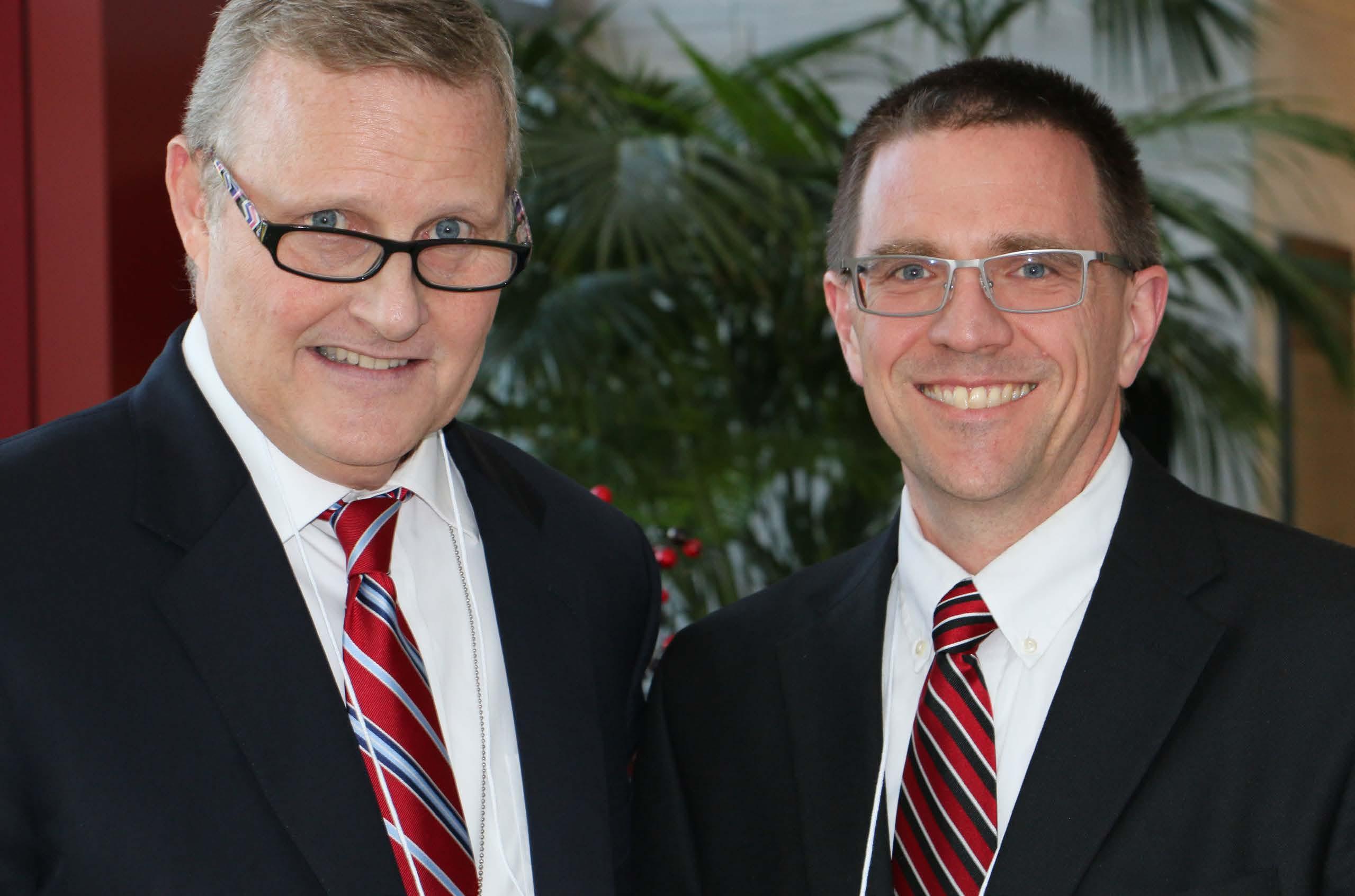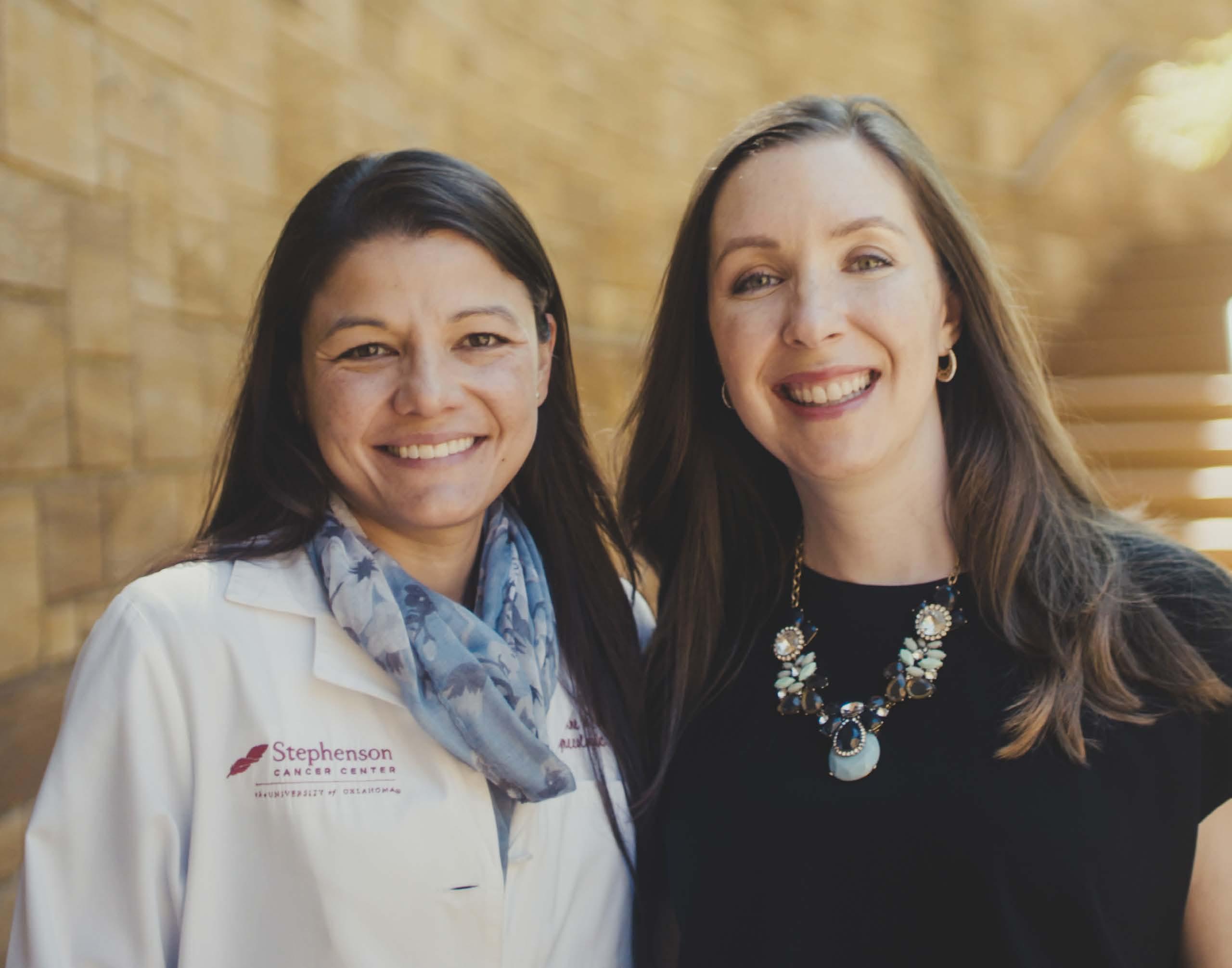VITAL SIG NS
university setting. They may need new strategies for managing a patient’s neuropsychiatric symptoms or treating difficult diagnoses related to dementia,” Jennings said. The grant’s second objective – to create dementia-friendly health systems – covers everything from the physical layout of a clinic to the community resources that are available for people and their caregivers. Clinics can improve their environments by ensuring signs are understandable, exam tables are easy to use for older adults, and sensory aids like hearing amplifiers and large-print materials are available. A dementia-friendly practice also means both clinical providers and staff can connect patients and families with community resources where they live. Support groups, for both caregivers and the person living with dementia, are often crucial in helping people cope. They also can help reduce the stigma that is still associated with the disease. “We want to let people know that there are resources, and we don’t want caregivers to feel stigmatized,” Jennings said. “It can be isolating if caregivers don’t feel like they can go out into the community with their loved one. We want to help people live with dignity and be as independent as possible while they age with this disease.” The effort also extends to Oklahoma’s Native American tribes. The Choctaw Nation in particular is working not only within its own geriatric clinics, but beyond the healthcare setting to transportation access for people with dementia. “This grant and program would not be possible without our many community partners,” Jennings said. “We are putting these federal dollars to use in our communities throughout Oklahoma to improve the health and quality of life of people with memory loss, Alzheimer’s disease and other types of dementia.” This federal grant was awarded by the U.S. Department of Health and Human Services under the award number 1 U1QHP330820100.
Connect+Cure Gala Raises Record Amount for Diabetes Research Nearly a thousand people gathered for the 2019 Connect+Cure Gala on Oct. 22 to support Harold Hamm Diabetes Center and celebrate the progress being made toward a cure for diabetes. Now in its fifth year, the Connect+Cure Gala raised nearly $1.9 million, the most in the event’s history. In addition, more than $196,000 was raised to sponsor participants in Camp Blue Hawk, a residential camp program for children and teens, ages 9 to 17, with Type 1 diabetes.
“It was a pleasure to be in a room full of Oklahomans raising awareness of a pandemic and celebrating the achievements that bring us closer every day to our goal for a cure.” “It was a tremendous evening of celebrating the ongoing progress being made in finding a cure for diabetes,” said Harold Hamm, lifetime HHDC board member. “In addition to celebrating, we spent time educating and informing on the work we still have to do. The amount of money raised will make a significant impact on diabetes research, and I am as confident as ever that we will find a cure for diabetes right here at HHDC in Oklahoma.” Master of ceremonies for the evening was three-time World Series champion and Major League Baseball Hall of Fame manager Tony LaRussa. Grammy award-winning singer Trisha Yearwood provided the entertainment, performing both her hits and songs from her newest record. Guests also enjoyed a meal inspired by Yearwood’s recipes. The highlight of the evening was the presentation of the 2019 Harold Hamm International Prize for Biomedical Research in Diabetes, which comes with a $250,000 award. The honor was presented to Daniel J. Drucker, M.D., a professor of medicine at the Lunenfeld-Tanenbaum Research Institute, Mt. Sinai Hospital, University of Toronto in Ontario, Canada. Drucker’s discoveries have led to the development of two new treatments for Type 2 diabetes. “It was a pleasure to be in a room full of Oklahomans raising awareness of a pandemic and celebrating the achievements that bring us closer every day to our goal for a cure,” said Jed Friedman, Ph.D., director of HHDC and associate vice provost for diabetes programs. “One in three Oklahomans has Type 2 diabetes or is pre-diabetic, and our state ranks fourth in the nation for diabetes deaths. These numbers are tragic and unacceptable. Funds raised from Connect+Cure Gala will help us meet the goals of bringing talent, technology and teams to Oklahoma and help secure the future of HHDC in its efforts to prevent, treat and find the next cure for diabetes.”
[ Fa l l / Wi n t e r 2 019 ]
11











































